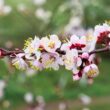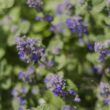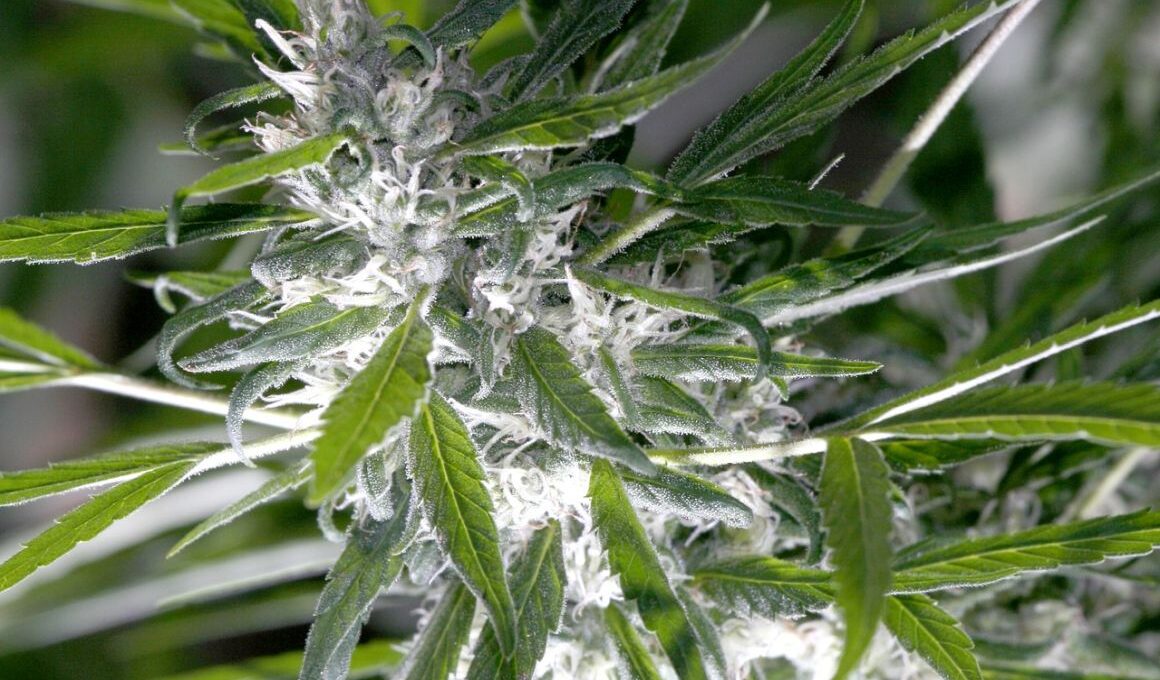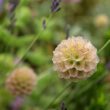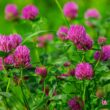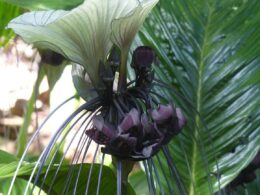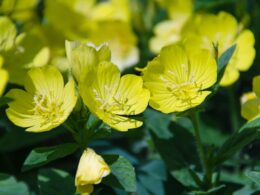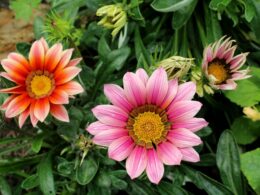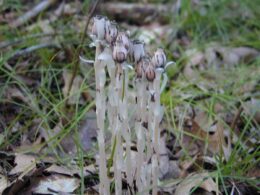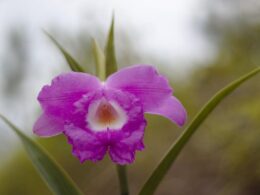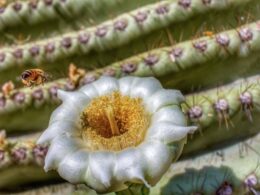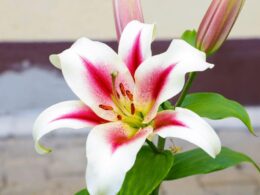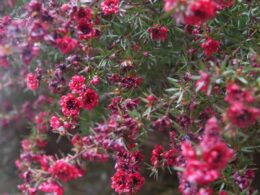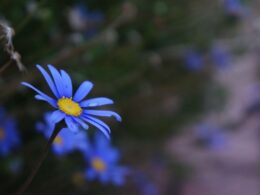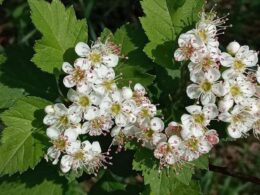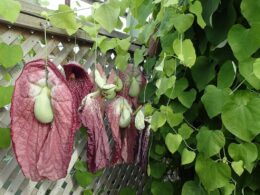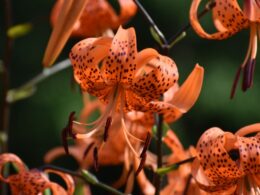What Does the Term ‘Cannabis Flower’ Mean?
The cannabis flower is the most potent part of the hemp plant. It’s the smokable, trichome-covered part of the female cannabis plant, containing the highest concentration of tetrahydrocannabinol (THC). THC is the psychoactive compound that gives cannabis its recreational and medicinal properties.
The cannabis flower can be used to make a variety of products, including:
- cannabis oil;
- cannabis edibles;
- cannabis tinctures;
- cannabis topicals.
Besides THC, the cannabis flower contains other cannabinoids, such as cannabidiol (CBD), as well as terpenes and flavonoids. These compounds work together to create the entourage effect, which is responsible for the plant’s therapeutic effects.
How to Get Your Cannabis Plant to Flower?
To answer this question, let’s go through all the stages of cannabis growth and the recommended conditions for each of them. Cannabis plants have a life cycle that can be divided into four main stages:
- germination;
- vegetative growth;
- flowering;
- harvesting.
During the germination stage, mature cannabis seeds need to be kept in a wet, dark place. Once they start sprouting, they should be moved to a moist soil mix and given 18 hours of light per day.
The vegetative stage is when the cannabis plant starts growing leaves and stems. During this stage, your plant will need more water and higher temperatures. Be careful not to drown it – allow the soil to dry out between waterings.
To trigger flowering, growers need to change the light cycle to 12 hours of light and 12 hours of darkness. This change in the light cycle tells the cannabis plant that it’s time to start reproducing, which is why this stage is also called the flowering stage.
To ensure a good harvest, growers need to monitor the trichomes – the tiny crystals on cannabis buds that contain THC and other cannabinoids. These crystals change color as the plant matures, going from clear to amber. When most of the trichomes are amber, it’s time to harvest your cannabis flowers!
Cannabis Varieties and How They Flower
Now that you know the basics of cannabis flowering, let’s take a look at the different cannabis varieties and their flowering habits. There are two main types of cannabis: indica and sativa. Indica plants are shorter and bushier, while sativa plants are taller and have thinner leaves.
Indica strains typically flower faster than sativa strains – in as little as 8 weeks. They also have a higher yield potential and are better suited for cold climates. Sativa strains, on the other hand, take longer to flower – up to 12 weeks. They don’t do well in cold climates and have a lower yield potential, but are said to be more energizing.
You can also find cannabis strains that are a mix of indica and sativa. These hybrid strains might take longer to flower than indica strains, but they offer the best of both worlds in terms of yield and potency.
Will Cannabis Flower if You Forgot to Shorten the Light Cycle?
If you forgot to change the light cycle and your cannabis plant is still in the vegetative stage, don’t worry – it will eventually start flowering. However, it might take longer than usual for the plant to mature. Here are three things you can do:
- move your plant to a 12/12 light cycle;
- use a plant hormone called gibberellic acid (GA);
- trim the leaves of your cannabis plant.
Some cultivars will also start flowering at 14 hours of light, and might do well in natural light conditions that are not perfectly 12 hours. The 12/12 cycle applies to greenhouse cultivation, and your mileage may vary.
Cannabis Flowering Tips
If you’ve started your cannabis plants from seed and want to move on to the next stage, here are a few tips to help you get the most out of them.
- Start with healthy plants. Make sure they’re free of pests and diseases before you start the flowering process.
- Be patient. Don’t harvest your cannabis too early or too late.
- Monitor the trichomes. Use a magnifying glass to get a good look at the crystals on your cannabis buds.
- Cure your cannabis properly. Curing is an important step that allows the THC and other cannabinoids to reach their full potential.
Where Are Cannabis Flowers Legal?
Cannabis flowers are legal in some states for medicinal or recreational use. In other states, cannabis is only legal for CBD products. The laws are constantly changing, so make sure to check the latest cannabis laws in your state before growing or using cannabis. Medical marijuana can be obtained at licensed dispensaries.
In Conclusion: Cannabis Flowers at Set Conditions
The cannabis flower is the most potent part of the plant, thanks to its high THC content. However, cannabis flowers also contain other cannabinoids and compounds that contribute to the plant’s therapeutic effects.
If you want to grow cannabis at home, it’s important to understand the flowering process. Cannabis plants will normally flower when they’re moved to a light cycle of 12 hours of light and 12 hours of darkness.
Have you ever grown cannabis at home? Share your tips and experiences in the comments below!



